De korenvelden van den vorst
Details
Words by E.M. van Loggem
piano reduction
op 103
Words by E.M. van Loggem
piano reduction
op 103
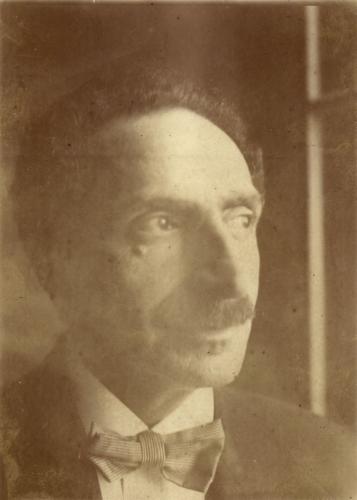
Born into a humble family, Andries de Rosa was trained to become a diamond worker. But as a young man he moved to Paris pursuing a career in music, which was no easy task. He was part of the left-wing literary circles and avant-garde of that time. He eventually settled in 1912 in Amsterdam, becoming involved in socialist movements. Later in life, composing was increasingly diminished by his many administrative functions; cultural education was of paramount importance to him. De Rosa and his family were murdered in 1943 in Sobibor.
by Diet Scholten
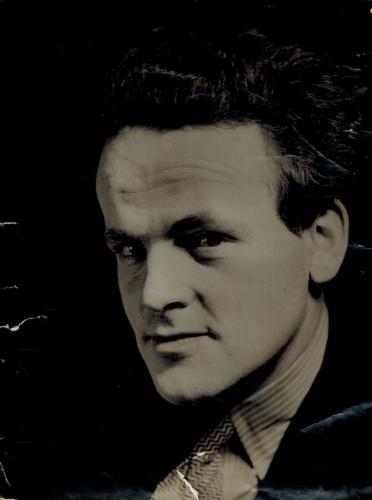
Composer Bertus van Lier was a versatile and determined intellectual. From the start of World World II he upheld his principles against the occupier. During and after the war he maintained this attitude towards those colleagues who were suspected of collaboration with the enemy. In compositions written during the war, Van Lier expressed his resistance to the deprivation of liberty, especially in his vocal works. After the liberation his work as composer diminished and he focused on his activities as a musicologist, pedagogue and publicist.
by Diet Scholten
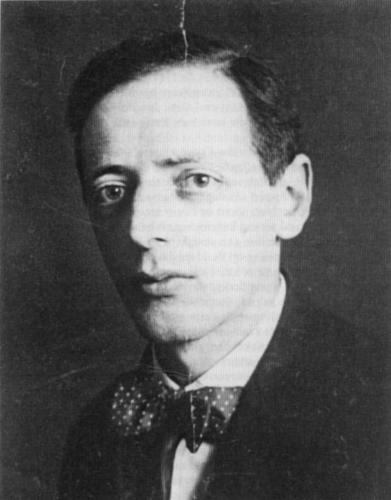
In his early years, Bob Hanf received drawing lessons from the legendary George Breitner. While studying in Delft he became friends with writers Hendrik Marsman and Simon Vestdijk. Hanf studied violin with Louis Zimmerman and played under the baton of conductor Martin Spanjaard. He later turned to composing. His varied oeuvre of unpublished works was discovered just a few years ago, rescued from oblivion.
by Eleonore Pameijer
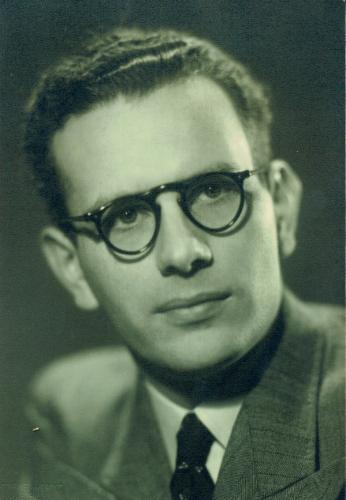
Carel Jacobs was an outstanding student at the Nederlandsche R.K. Kerkmuziekschool (Dutch Roman Catholic Church music school), where he studied composition with Johan Winnubst. Feeling unsafe as 'Vierteljude', he gave up his conducting classes with Carl Schuricht in Germany. During the war he helped many people in hiding and got caught and escaped twice. He conducted several choirs in the east of the Netherlands and became the director of the conservatory in Enschede. His compositions vary from chamber music to music for his own choirs.
by Dr. Hans van Dijk
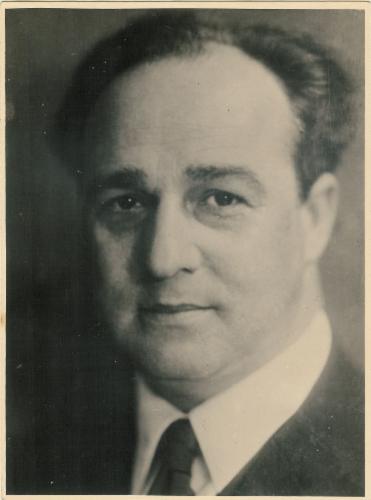
Daniel Belinfante's manuscripts, donated in 1955 to the Dutch Music Institute in The Hague by his widow Martha Belinfante-Dekker, remained untouched for decades. It is an oeuvre of some 100 compositions consisting of solo concertos, an orchestral suite, string quartets, works for strings and piano, songs and choral works. During his lifetime, Belinfante's music was rarely performed. After his violent death in Fürstengrube, a subcamp of Auschwitz, it would take sixty years before his music was rediscovered.
by Marcel Worms
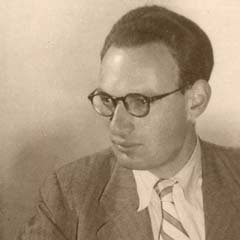
Dick Kattenburg was extremely talented. It was obvious that he would enjoy a flourishing career as a violinist for years to come. Even today, some seventy years later, his appealing music immediately touches the heart. A large part of his oeuvre was created during his period in hiding. He was murdered at the age of 24. Thanks to his romance with a young flutist, his manuscripts were preserved and found an audience after all these years.
by Carine Alders
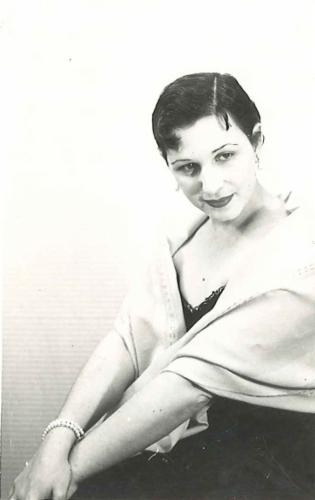
Fania Chapiro was born in 1926 in Indonesia (the former Dutch East Indies), on the island of Java, in a carefree musical environment. She had a Russian father, her mother was Dutch. Both parents cherished the exceptional musical talent of their only child, making many sacrifices to support this. Fania was half-Jewish and that would affect the course of her career. When she wrote in her diary in early 1935: “I have decided to become a composer and a wonderful pianist,” she could not expect the war would get in her way. Despite everything, she persevered; her efforts culminated in a beautiful career as a pianist and composer.
Margaret Krill
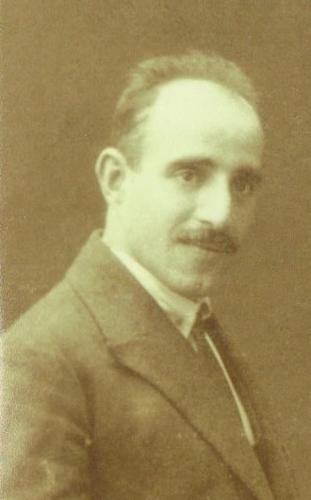
Franz Weisz (Weisz Ferenc in Hungarian) decided to leave his home country Hungary due to the political situation and overt anti-Semitism. In the Netherlands he enjoyed two decades of freedom and musical possibilities, but then as a Jew, he was interned in camp Westerbork and later deported to Theresienstadt and Auschwitz. The second inevitable displacement led to his death. Weisz was a great pianist who left behind an oeuvre of several virtuoso piano pieces.
by Annette de Klerk-Roggeveen
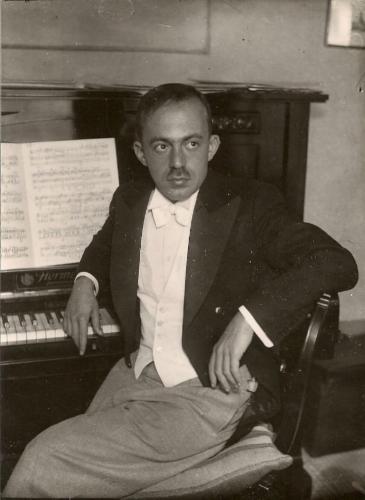
The Hungarian Géza Frid was one of the key figures in the post-war Dutch music world. To escape the dictatorship of his country of origin, he fled to the Netherlands in 1927. He always remained true to the musical language of his roots. As of 1941, Frid as a stateless Jew, was prohibited from performing in public. He became involved in illegal activities and the artists' resistance movement, and it's a miracle he survived the war. After the liberation, he resumed his life as an artist. For years he was one of the most frequently performed composers in the Netherlands. Since the turn of the twentieth century there was even a sort of “Frid-Renaissance.”
by Arthur Frid
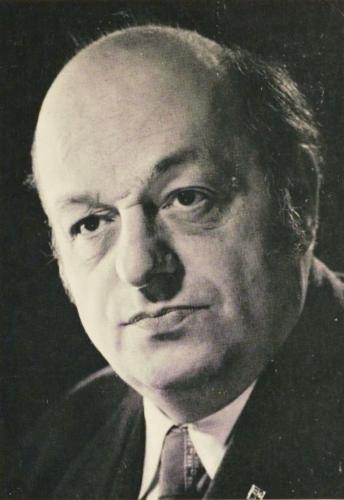
The life of Hans Krieg, a German who became a Dutch citizen in 1951, was marked by the horrors of Nazi ideology. Before the war, a promising career as a composer and choral and opera conductor was on the horizon, however, when Hitler and the Nazi Party came to power, Krieg, as a persona non grata had to flee his homeland. He managed to establish a new life in the Netherlands, but after the war he had to rebuild his life. Once more he succeeded, and this humble man was recognized as a key figure in the Jewish community.
by Aagje Pabbruwe
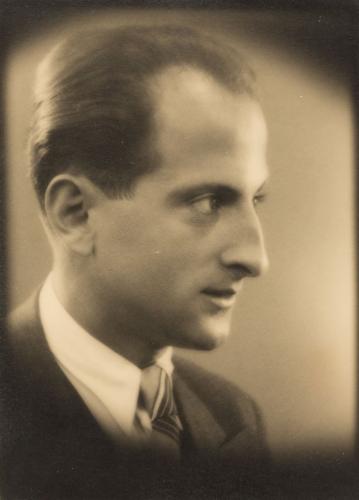
Born in Germany as Heinz Lachmann, Hans Lachman started his musical career in film music and light music. After World War II, which he survived by hiding in the province Limburg, he began composing in a modern classical idiom, building up a considerable oeuvre, including Jewish liturgical music. It is hard to believe that his music, so frequently broadcasted, was later completely forgotten until 2008, when his scores were discovered in a damp garden shed.
by Eleonore Pameijer
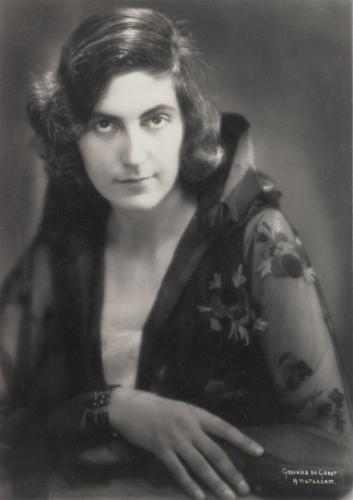
Before the war, Henriette Bosmans already enjoyed a well-established reputation in Dutch musical life, especially as a pianist. During the war she was not allowed to appear in public and had to support herself with underground house concerts. Her considerable oeuvre includes orchestral works, chamber music and many songs.
by Helen H. Metzelaar
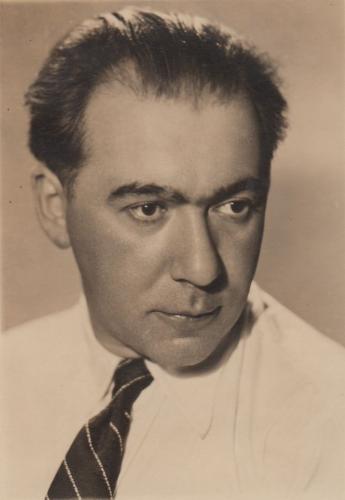
His hometown Lemberg, in the Ukraine known as Lviv, and in Poland as Lwów, has a history of occupation by shifting powers. This is why the Germans had trouble figuring out Ignace Lilien's real identity; he survived the war with forged documents. He worked as a chemical engineer, but that didn’t stop him from composing a large oeuvre. His life was as varied as his music, with influences ranging from Polish modernism to South American rhythms and timbres.
by Frans van Ruth
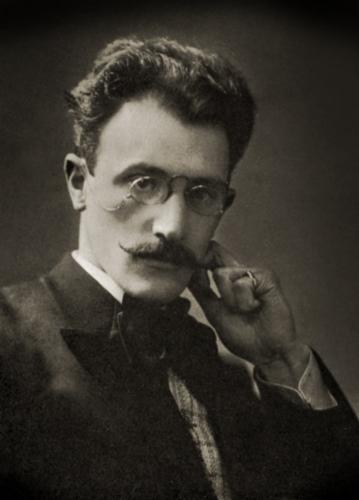
Up until World War II, Israel J. Olman had been a celebrated choral conductor and composer. He wrote synagogal music and also music for socialist choirs, to be performed at major singing competitions. His fame, in addition to the fact that he was married to a Catholic woman, offered him some protection during the war. In the post-war years his reputation as a composer diminished rapidly, creating financial difficulties. The world had changed and his musical idiom had become outdated.
by Pauline Micheels
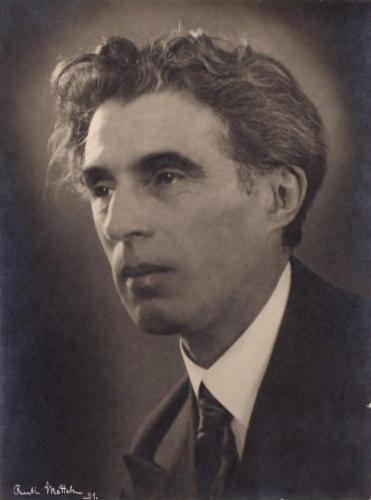
James Simon was a highly intelligent and accomplished pianist, composer and musicologist. He studied philosophy, loved poetry and felt at home with the great German musical tradition. Music was his life. So much so, that his son would call him ‘other worldly’. He continued to compose until the very end.
By Phillip Silver and Carine Alders
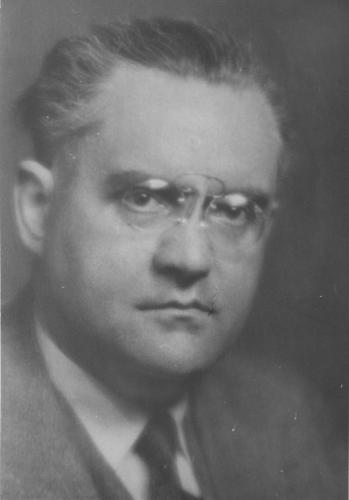
Jan van Gilse received his musical education in Germany. His music developed into a synthesis of French impressionism and German romanticism. He became a popular conductor and one of the founders of the Society of Dutch composers (GeNeCo) and also the copyright organization BUMA. During the war, this socially engaged human being was fiercely anti-German. He had to pay a heavy price for his fighting spirit.
by dr. Hans van Dijk

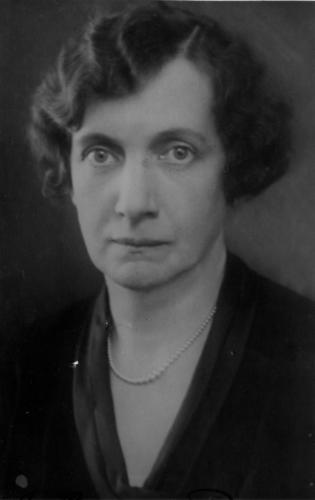
Johanna Bordewijk-Roepman was a versatile composer. She wrote for piano, small ensembles, for large orchestra, choirs and even carillon. She largely taught herself composition and displayed an enormous originality. Her music cannot be categorized into any style or school. During World War II she was a supporter of the artists' resistance and courageously refused to register with the Kultuurkamer, imposed by the German occupiers to register, regulate and/or restrict the activities of Dutch intellectuals and artists. Those who signed up to participate had to sign a declaration of (Aryan) ethnicity. Jews were not allowed. After the war, she and her husband were members of the ‘Courts of Honour’, established to purge one’s own discipline of collaborating colleagues.
by Elly Kamp
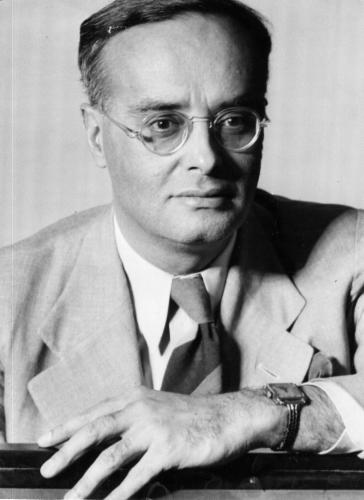
Julius Hijman's life centered around contemporary and Dutch music. Touring internationally, he presented the works of Dutch composers, and in the Netherlands he introduced new music from abroad. His own compositions were not always appreciated by his peers. He fled into exile in 1939 to America and was forgotten in his native country. The majority of his extensive oeuvre remains unpublished, awaiting performance.
by Carine Alders
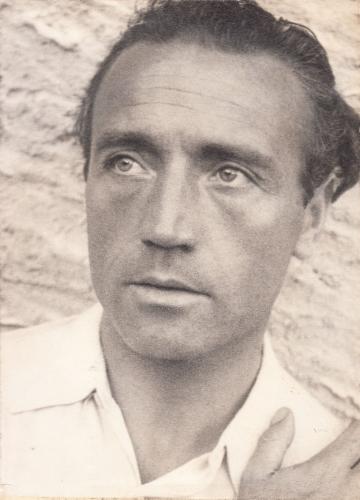
The term ‘homo universalis’ or Renaissance Man originated as a description of individuals, that helped humanity escape the dark ages by virtue of their open minds and tenacious pursuit of new knowledge. Leo Kok was such a polymath in his own lifetime, the twentieth century; a gifted football player, a pianist of the highest level, a vocal coach, a composer. He also had a great interest in literature and politics. As an anti-fascist activist he joined the resistance movement during World War II. He survived the tortures of Buchenwald but his piano career was ruined. After the war, he turned his passion to literature and books.
by Marcel Worms
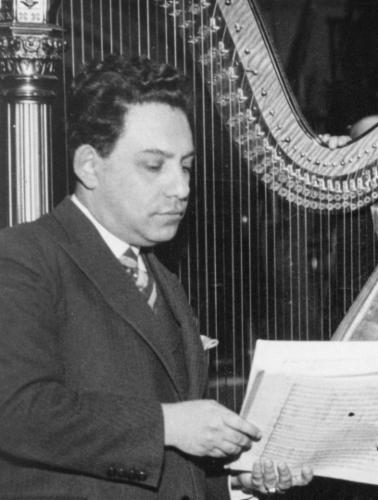
1900 - 1943
His music sounds thoroughly French, with bright and blithe notes that seemingly flow easily from his pen. In reality, it took many years before his musical ideas were incorporated into his compositions. And however French it may sound, Leo Smit was in heart and soul hooked to Amsterdam and the Netherlands. His song for women's choir, De bruid (The bride), set to words by Jan Prins is a declaration of love: “The groom was the sunlight and Holland was his bride.” It also took years before his legacy would reach an international audience.
by Jurjen Vis
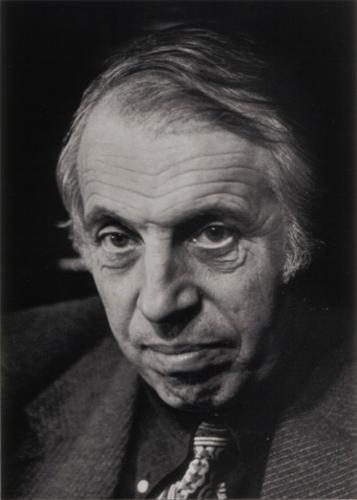
During World War II, Alexander Zwaap had to cover his identity by living under an alias. As of 1953, he legally changed his name to Lex van Delden. His life story is impressive considering the traumatic events he experienced in the war years. A past of which he never spoke, and which he knew to overcome with tremendous courage and resilience. Music was for him a “transfer medium between people.” He literally practiced this with his compositions. Van Delden was a great advocate of Dutch music and held several board positions in the Dutch music world.
by Margaret Krill
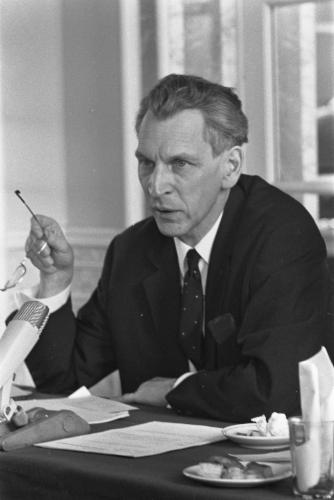
Marius Flothuis led an eventful life. Early on, he was politically aware and left-wing orientated. He lost his job at the Concertgebouw Orchestra on his refusal to register with the Kultuurkamer, a regulatory cultural agency installed by the German occupying forces during World War II. He was arrested for his resistance work, imprisoned in Camp Vught and deported to Sachsenhausen in 1944. Meanwhile, he continued composing and survived the hardships. In the postwar Dutch and international music worlds he held numerous positions.
by Joyce Kiliaan
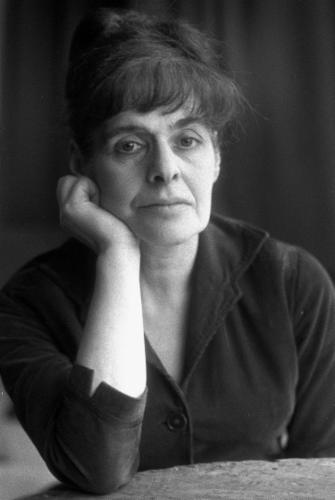
Marjo Tal shunned publicity and rarely gave interviews. As a composer and a pianist she was solely concerned with creating and recreating music, and was subservient to this her entire life. The few magazine articles about her published through the years reveal her passionate and self-conscious artistry. Sparse photographic material shows a beautiful woman with sensual and melancholic features. Tal survived the war underground. Her career as a pianist peaked in the mid 1960s and she then focused more on composing. At the end of her life she emigrated to Israel.
by Esther Blom
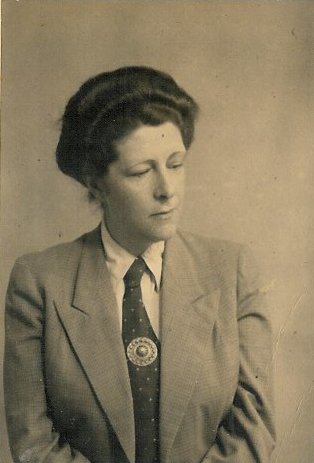
Martha Dekker, sister of the author Maurits Dekker, led a clandestine existence in hiding in Rotterdam, survived the war and was awarded for her resistance work. She was known for the so-called SD-performances (Singing and Declamation), the Belinfante Method (after the war renamed as the Belinfante-Dekker Method) focusing on a conscious use of breathing (from the diaphragm) and voice. Martha set her own poems to lyrical dramas, tailored to this method. People suffering from asthma benefitted from her approach. Her work as speech therapist, singing teacher and composer of folk songs, cantatas and resistance songs, has an historical value.
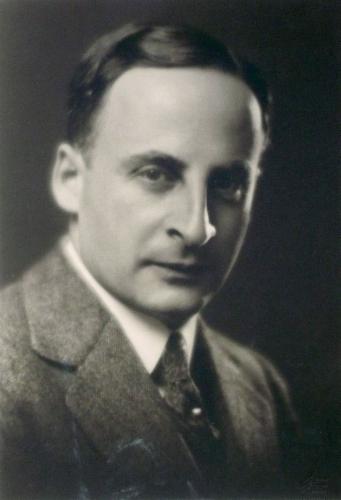
Martin Spanjaard studied composition with Cornelis Dopper in Amsterdam and Friedrich Gernsheim in Berlin. He primarily made a career as a conductor. Most of his compositions date from the beginning of his career, before he was appointed as conductor of the Arnhem Orchestral Society. An increasingly busy schedule, serving as guest conductor in Berlin, Vienna, Budapest and Prague left little time for composing. After 1933, he conducted exclusively in the Netherlands, until that was also prohibited. Martin Spanjaard was murdered in Auschwitz.
by Carine Alders
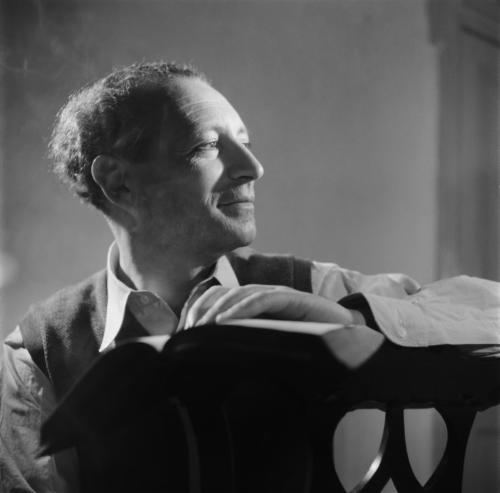
Max Vredenburg is especially known for his pioneering role in the establishment of Jeugd en Muziek Nederland (Youth and Music in the Netherlands). As a music critic, he worked for almost all the Dutch newspapers sharing his great knowledge with readers. As a composer he left a varied oeuvre. A unique man, who honestly and tirelessly expressed his love for music. A modest and amiable person with an exemplary work ethic and a strong desire to realize his ideals.
by Aagje Pabbruwe
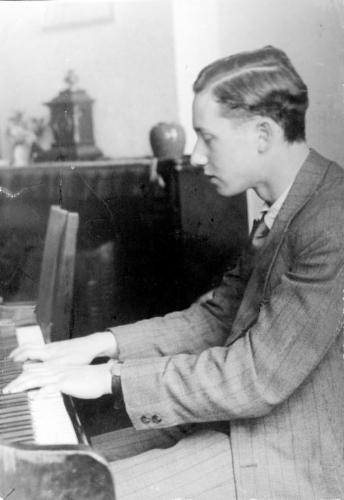
The pianist Mischa Hillesum was an extremely musical, sensitive but also mentally unstable personality. Conservatory teachers acknowledged his stunning talents and audiences were thrilled by his performances. Music was his primary necessity, his way of dealing with daily realities. He was hospitalized several times in a mental institution. In 1943, the Hillesum family arrived in Westerbork. Mischa eventually died while detained as a forced laborer in Warsaw. Only a few of his compositions are known.
by Jan Willem Regenhardt
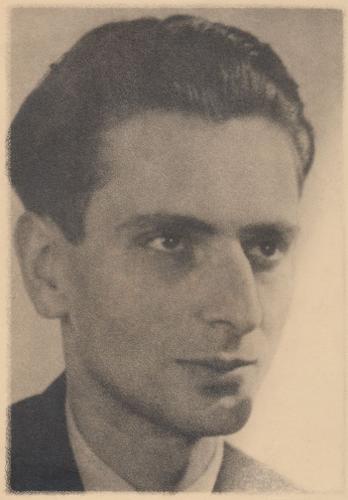
Almost all Nico Richter’s surviving compositions date from his student days. Most of them are ultrashort, inspired by Webern and Berg. As a student of medicine, he directed the student orchestra MUSA. He joined the resistance, was arrested in 1942 and sent to work in successive concentration camps. A physical wreck, he dictated his final composition on his deathbed just after liberation. His talent never reached full maturity.
by Dr. Julia Muller-van Santen
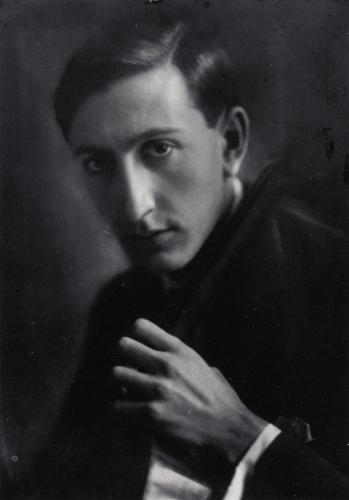
Cellist and composer Paul Hermann steered into a new direction, several times during his life, to escape from the claws of anti-Semitism. As a young musician, there was no future for him in Hungary and he set off to Berlin. But in 1933, life in the dynamic metropolis became increasingly difficult. He performed as long as he could throughout Europe, with his own music and works by his teachers Kodály and Bartók. Ultimately, in Toulouse, Hitler's long arm caught him.
by Carine Alders
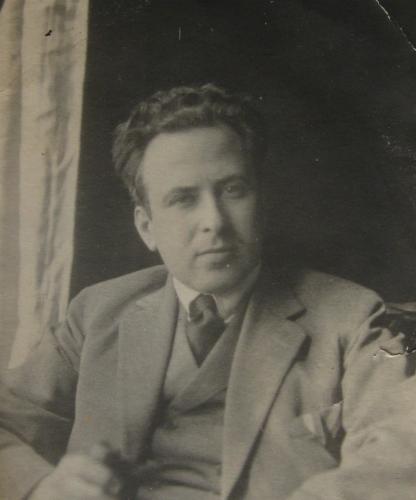
His musical legacy is modest but nonetheless fascinating. Many of his compositions demonstrate social engagement and sometimes are more explicit: e.g. 'Plan Song' for the Dutch Labour Party (SDAP). With his music reviews in the socialist newspaper Het Volk (The People) he hoped to lure the working class into the concert hall and to move them up the social ladder. In addition to composing and writing about music, he was also active as a music editor, organiser, and director. Although nearly forgotten today, he was a distinguished and very productive figure in the pre-war Dutch music industry.
by Claartje Wesselink
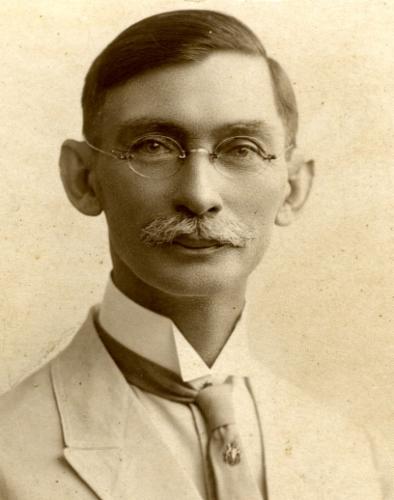
Paul Seelig lived most of his life on the island of Java, but he made trips to Europe, America, Australia, Japan and Siam. He had a music business in Bandung. In his music he combined Eastern and Western elements. He developed into a renowned composer and was programmed at the Wiener Festwochen and many other venues. During the war he remained on Java, at that time Dutch territory, while his other family members lived in the Netherlands. In 1943, he was interned in a camp where he died on June 12, 1945. Many of his manuscripts and compositions were lost.
by Henk Mak van Dijk
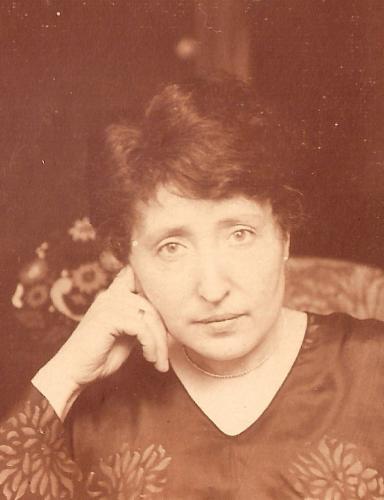
Reine Colaço Osorio-Swaab started her career as a composer later in life. Initially she wrote mainly songs in a late-Romantic style. After lessons in composition with Henk Badings, her music became more atonal. We know little about how Reine survived the war, she never talked about this period. Despite the fact that most of it was published, her work was largely forgotten.
by Carine Alders
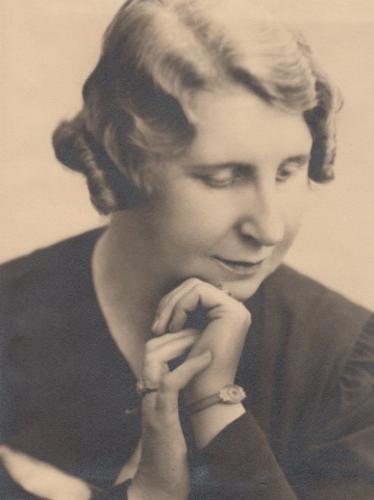
Rosy Wertheim was one of the first Dutch women composers who completed a professional music education and gained international acclaim. Next to music, she was deeply committed to social causes. She lived in Paris for seven years, and for some time in Vienna and New York; her home was a meeting point for artists. Her compositions were performed nationally and internationally, and she worked as a correspondent for several newspapers and magazines. She was in the Netherlands when World War II broke out, and survived by going into hiding. She left a varied and interesting oeuvre of some eighty works.
by Eleonore Pameijer
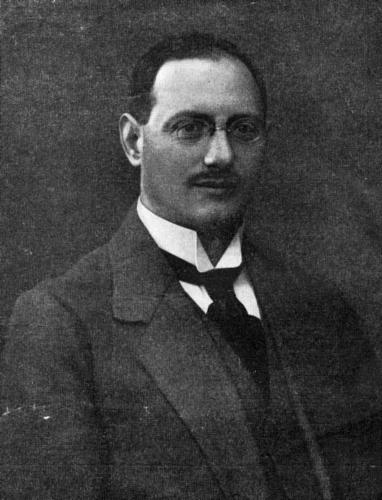
On December 11, 1942, Samuel Schuijer was murdered in Auschwitz. His home and music school had been plundered by the Nazis. With the loss of his life and destruction of his belongings, all traces of this significant Dutch musician seemed to be erased. But a group of children in The Hague found a box containing music manuscripts, waiting for the garbage truck. They took their treasure home and it became the first step in rediscovering a lost fragment of Dutch music history.
by Carine Alders
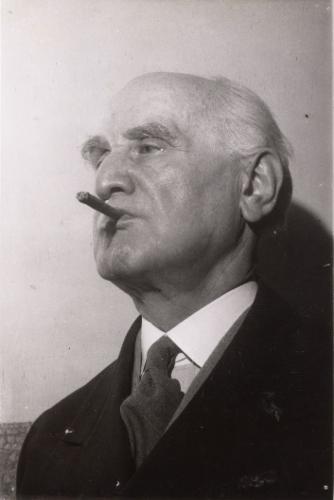
Despite his German-oriented teachers, Sem Dresden felt attracted early on to modern French music. He developed his own refined and sober style, composing his entire life. Dresden was of pivotal importance to Dutch musical life, working as a choral conductor and director of the conservatories in Amsterdam and The Hague. His legendary composition classes had a major impact during the interwar period.
by Geert van den Dungen
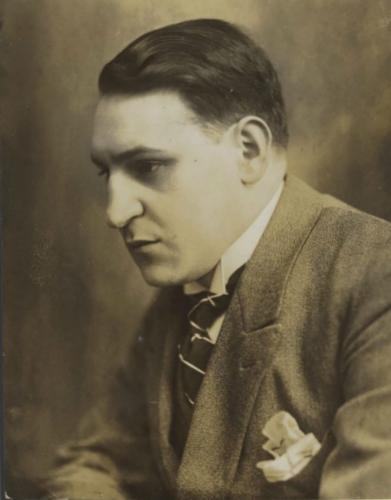
Relatively little is known about the life of Simon Gokkes. Most of his compositions were lost during the war; in the preserved works his preference for Jewish and biblical themes is apparent. From a young age Gokkes worked as a choir and opera conductor. He rescued a number of operas from oblivion. He and his family were murdered in Auschwitz in 1943.
by Diet Scholten
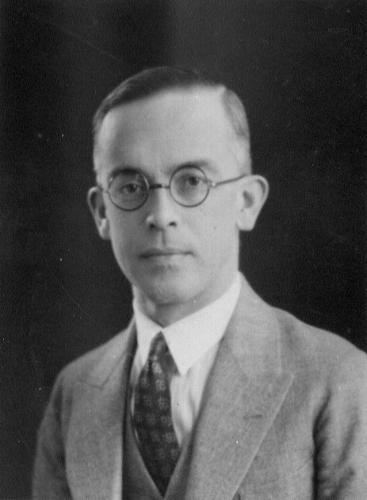
After Smit Sibinga's death, Everard van Royen, director of the Amsterdam Music Lyceum, praised him as a sensitive and skillful composer and “the beauty of the ancient civilization of the Indonesian archipelago which had influenced him during his twenty years in the tropics.” Theo Smit Sibinga’s music is transparent and melodic and he felt attracted to modern French culture. As a composer he remained relatively unknown since he was not the kind of man to put himself at the forefront. Many of his manuscripts were lost during his captivity in the camps on the island of Java in the Dutch East Indies.
by Henk Mak van Dijk
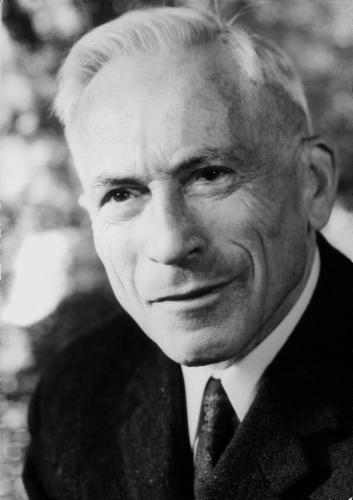
Wilhelm Rettich belonged to that generation of those whose work and life was deeply affected by the First and Second World Wars. Captivity, persecution, hiding and losses scarred his life. In 1933, he emigrated to the Netherlands, where he survived the war in hiding. Rettich worked a great deal for the radio, a young and progressive medium at that time. Although he became a Dutch citizen after the World War II, he returned to Germany in 1964.
by Diet Scholten
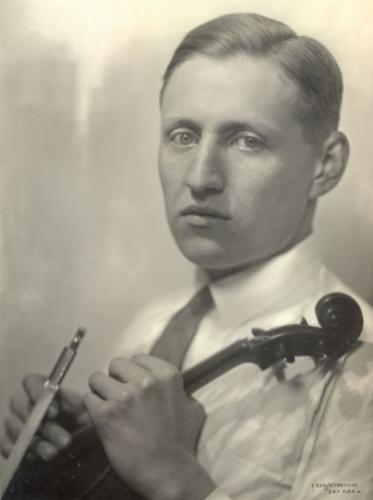
Venice, September 4, 1925. At the third festival of the International Society for Contemporary Music, a young Hungarian violinist presented his own Sonata for Solo Violin. The response to his performance was overwhelming: thunderous applause from the audience, praise from colleagues and rave reviews from the international press. A splendid success for the young violinist and composer Zoltán Székely. Present in the audience was his future wife, Igminia (Mientje) Everts from Nijmegen. She recalled the impassioned response from the public: “I have seen with my own eyes Stravinsky and Schoenberg standing on their chairs in the Gran Teatro La Fenice in Venice to applaud Zoltán’s performance of his Solo Sonata!”
by Joop Leijendeckers